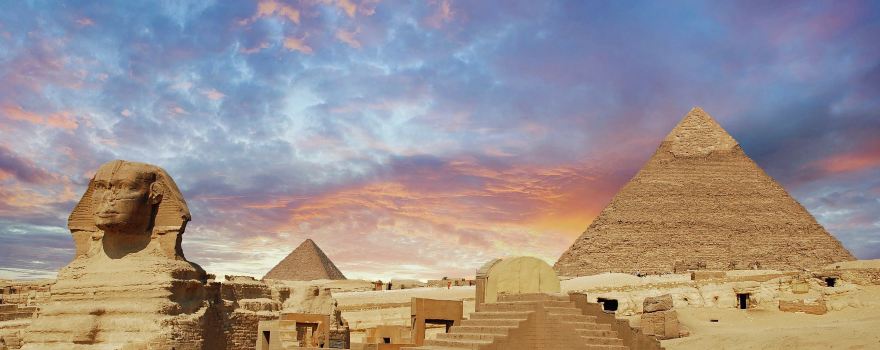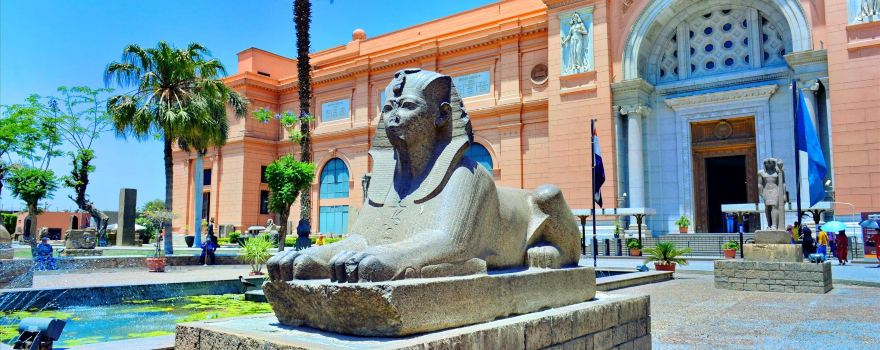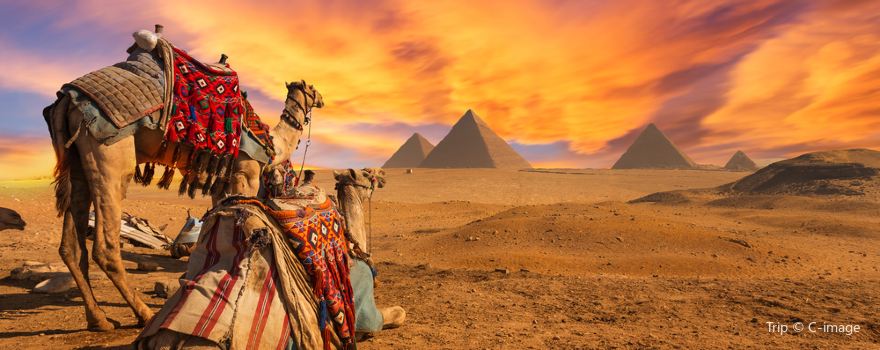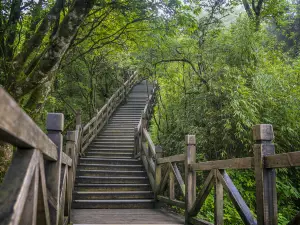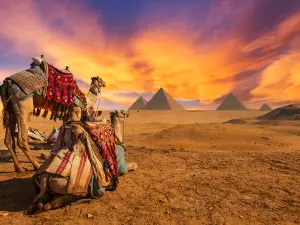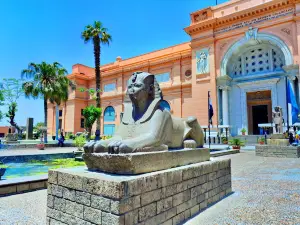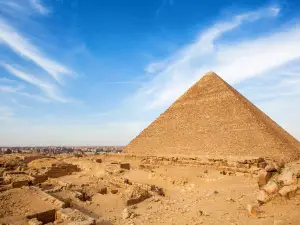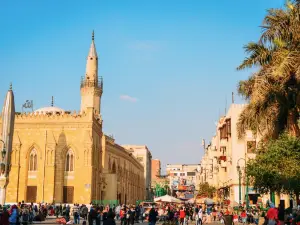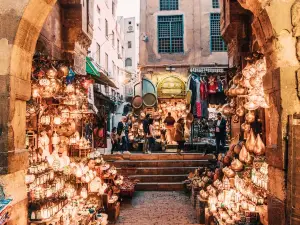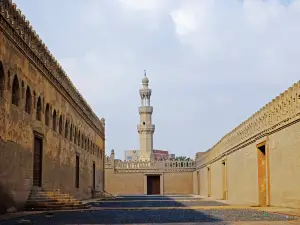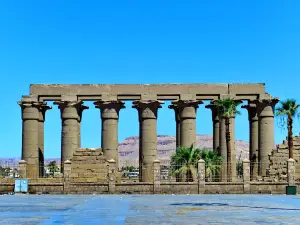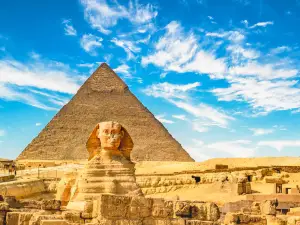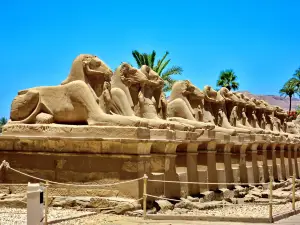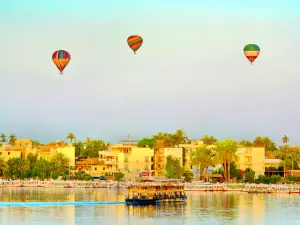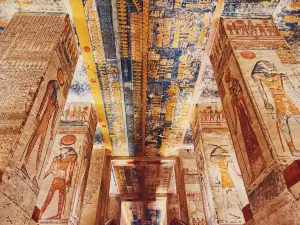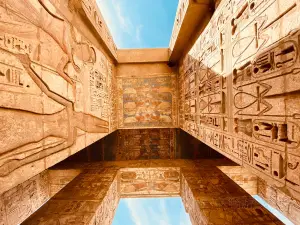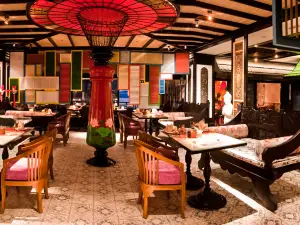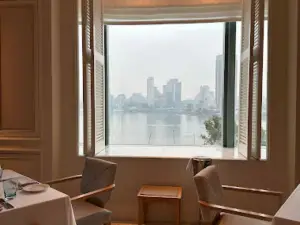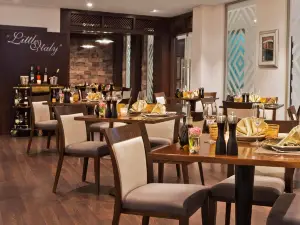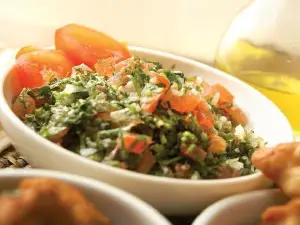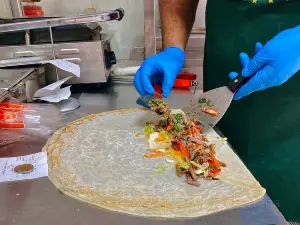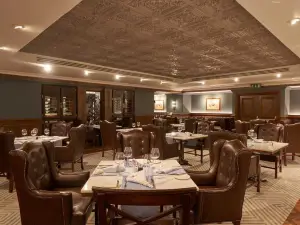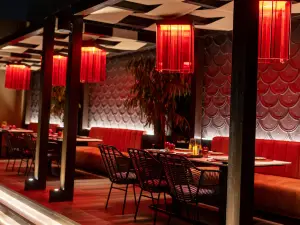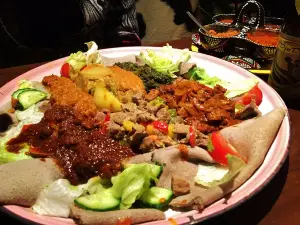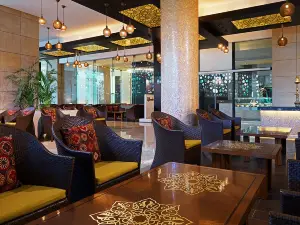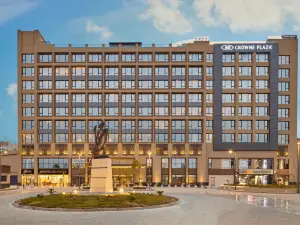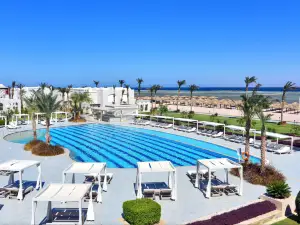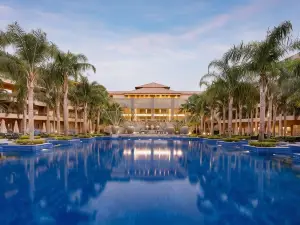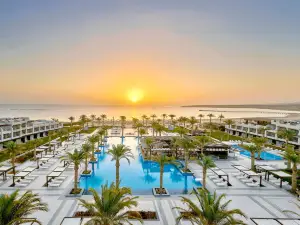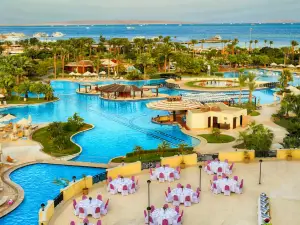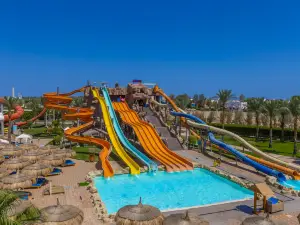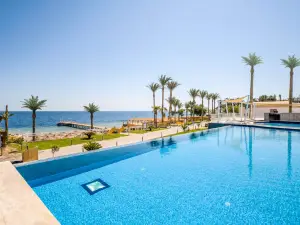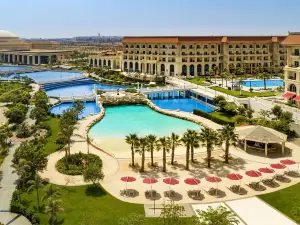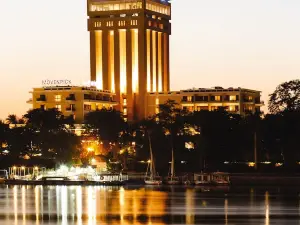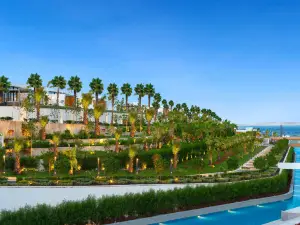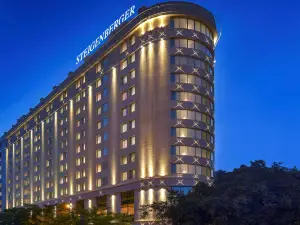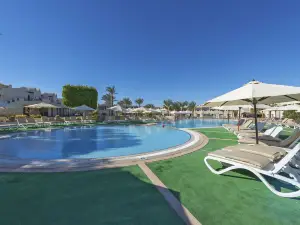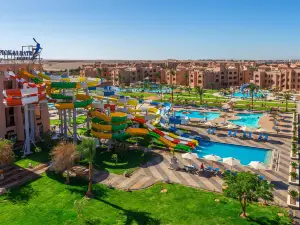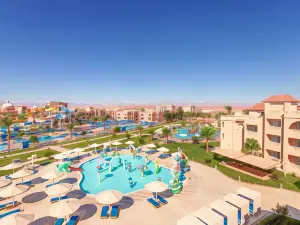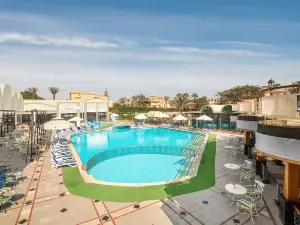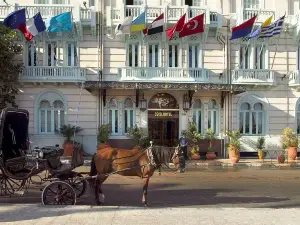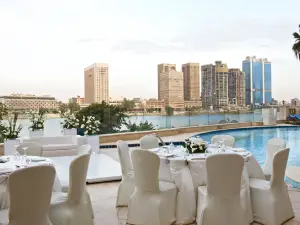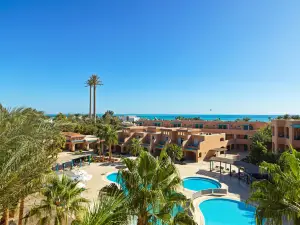2025 Egypt Travel Guide: Weather, Transportation, Popular Attractions, and Everything You Need (Updated 2025 4)
About Egypt
Recommended trip: 5–10 day(s)
Recommended trip: 5–10 day(s)Egypt Local Experiences Map
Egypt Local Travel Guide 2025
Egypt Brief Guide
As one of the earliest cradles of civilization, Egypt enthralls visitors with its rich history and cultural heritage. The Pyramids of Giza, the grand remnants of ancient splendor, lead the pack as Egypt's iconic and unmissable attraction. These magnificent structures have mesmerized visitors with their sheer size and geometric precision. Besides the pyramids, Egypt boasts other remarkable sites, including the Egyptian Museum in Cairo, which houses a vast collection of ancient Egyptian artifacts. Luxor, the world's greatest open-air museum, offers the majestic Karnak Temple and the historic Valley of the Kings, where one can explore colorful tombs and learn about pharaonic dynasties. For those intrigued by modern Egypt, its vibrant local markets and bustling streets offer a dose of contemporary Egyptian life and culture.
Egypt Best Time To Visit
The best time to visit Egypt is between October and April when daytime temperatures are pleasant and nights are cool, ideal for exploring the monuments and the desert. This period avoids the intense heat of the Egyptian summer, making it comfortable for tourists to visit various attractions. March to May is also a pleasant period for traveling, as the weather is warm yet quite comfortable, offering conditions for activities like diving in the Red Sea.
Egypt Must-try Local Experiences
1. Journey Through Time in Ancient Egypt Explore the Pyramids of Giza, the Sphinx, and the Egyptian Museum in Cairo. These iconic sites offer a glimpse into Egypt's rich history and are perfect for awe-inspiring photos. Capture breathtaking photos of the Pyramids of Giza at sunrise or sunset when the lighting is magical. 2. Cruise the Nile River Experience the beauty of Egypt from the water by taking a Nile River cruise. This journey allows you to see ancient temples, lush landscapes, and local villages along the way. 3. Experience the Enchanting Desert Venture into the Sahara Desert on a camel or jeep safari. Spend a night under the stars in a Bedouin camp and witness the breathtaking desert landscape. 4. Discover the Temples of Luxor and Karnak Visit the magnificent temples of Luxor and Karnak to witness impressive ancient architecture and hieroglyphics, showcasing the grandeur of the pharaohs. 5. Visit the Valley of the Kings Explore the Valley of the Kings in Luxor, where the tombs of pharaohs, including Tutankhamun, are located. The intricate wall paintings and history are fascinating. 6. Experience Traditional Nubian Culture Visit a Nubian village to experience the unique culture, colorful houses, and warm hospitality of the Nubian people. Enjoy traditional music and dance performances. 7. Savor the Flavors of Egypt Indulge in traditional Egyptian dishes like Koshari and Ful Medames. Don't miss trying local street food like ta'ameya (Egyptian falafel) and fresh sugarcane juice. Treat yourself to Egyptian desserts like Basbousa, a semolina cake soaked in syrup, and Konafa, a crispy pastry filled with sweet cheese or nuts. 8. Shop the Khan El Khalili Bazaar Explore the bustling Khan El Khalili Bazaar in Cairo, where you can shop for unique souvenirs, traditional crafts, spices, and jewelry. The vibrant atmosphere is a shopper's paradise. 9. Dive in the Red Sea The Red Sea is renowned for its crystal-clear waters and vibrant coral reefs. Whether you're a seasoned diver or a beginner, exploring the underwater world here is a must-try experience.
Egypt Travel Tips
1. Dress Code for Religious Sites: When visiting religious sites like mosques and temples, ensure you are dressed modestly. Long sleeves and pants are recommended, and women should carry a scarf to cover their heads. 2. Ramadan Etiquette: During the holy month of Ramadan, Muslims fast from sunrise to sunset. Be respectful by not eating, drinking, or smoking in public during daylight hours. 3. Food and Water Safety: Stick to bottled water and avoid street food if you have a sensitive stomach. Opt for well-cooked meals in reputable restaurants to avoid foodborne illnesses. Avoid tap water, fresh fruit juices, and salads. Peel fruits yourself and ensure food is thoroughly cooked. Always carry bottled water and drink regularly to avoid dehydration. 4. Taxi Safety: When using taxis, insist on using the meter or agree on a price before starting the journey. For added safety, consider using ride-hailing apps like Uber or Careem, which are widely available in major cities. Opt for the newer white taxis with meters over the older black ones. Sharing your ride details with a friend and using live location features can also enhance safety. 5. Metro Etiquette: When using Cairo's metro, be aware that the first two cars of each train are reserved for women only. This can be a more comfortable option for female travelers, especially during busy times. 6. Alcohol Regulations in Egypt: Alcohol consumption is allowed in Egypt, but it's restricted to licensed hotels, bars, and restaurants. Drinking in public places is prohibited and can lead to legal issues. During Ramadan, alcohol availability is limited, and only foreigners can purchase it. The legal drinking age is 21. Public intoxication is frowned upon and can result in legal consequences.
Egypt Transportation
To reach Egypt, the most common and efficient method is by air, with Cairo and Luxor hosting international airports; Cairo International Airport (CAI) is the primary one with flights from multiple global cities. Another way to enter the country is by road, although it is less recommended due to traffic and driving standards.
Egypt Best cities to visit
Luxor, a city on the banks of the Nile River in Egypt, is celebrated for its ancient Egyptian monuments and rich history. It is often referred to as the world's greatest open-air museum due to its collection of archaeological sites including the Valley of the Kings, Karnak Temple, and Luxor Temple. During the New Kingdom period, Luxor thrived as the capital of the Egyptian empire, witnessing significant trades alongside the powerful influence of Amun-Ra(one of the most popular deities of ancient Egypt). Today, Luxor remains a pivotal cultural tourism destination, boasting over 800 archaeological sites and a variety of attractions, making it a vital hub for those keen on exploring ancient civilizations.
Egypt Useful Guide
When driving in Egypt, it is essential to be aware of local traffic conditions. Drive on the right-hand side and observe speed limits with caution, especially during night time or in suburbs. Use seat belts and avoid using mobile phones while driving. Be prepared for emergencies by keeping a list of essential contacts. Important emergency numbers include 123 for ambulance services, 122 for police, and 126 for tourist police. Cairo Airport can be contacted at +2 2265-5000 or +2 2265-3333 for Terminal 1 and +2 2265-2029 or +2 2265-2222 for Terminal 2. Maintain vigilance and exercise caution, particularly in managing road safety and handling emergencies efficiently.
Trip.Best: Egypt
Popular Destinations
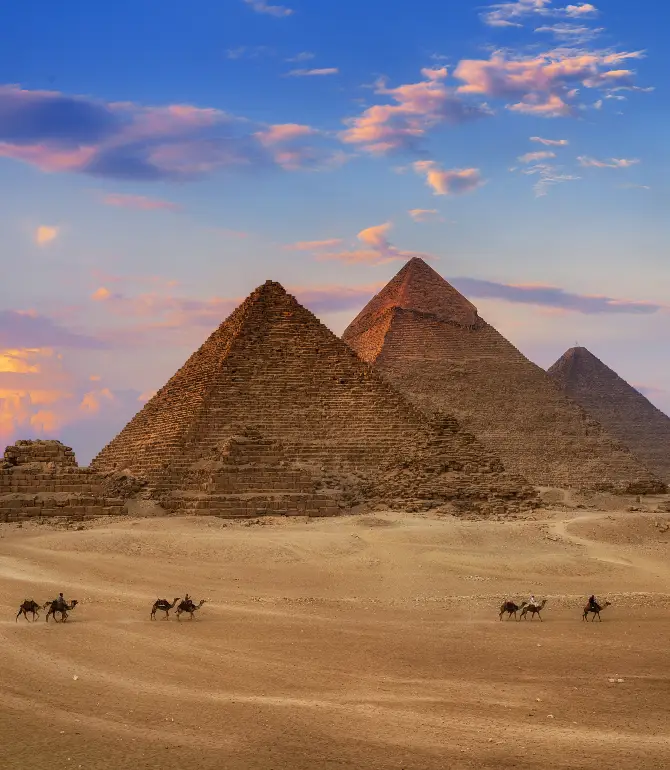
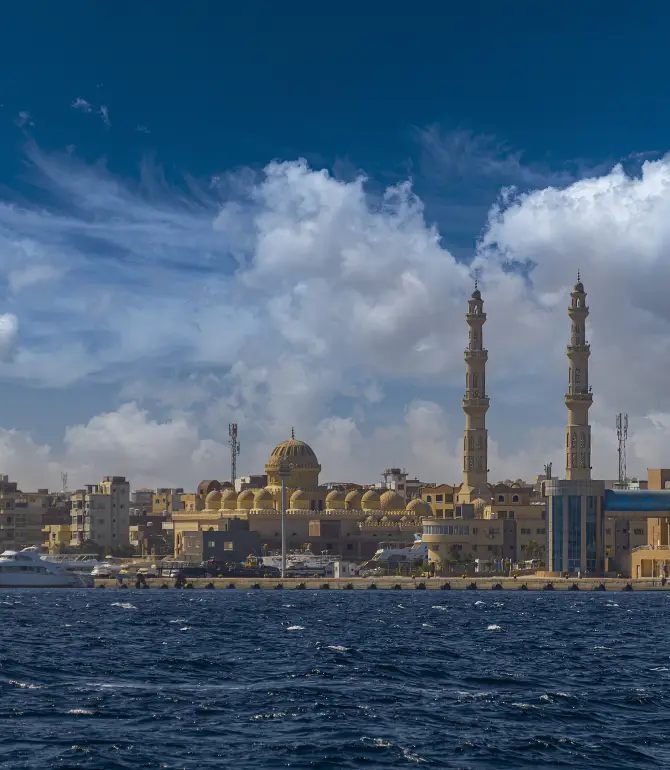
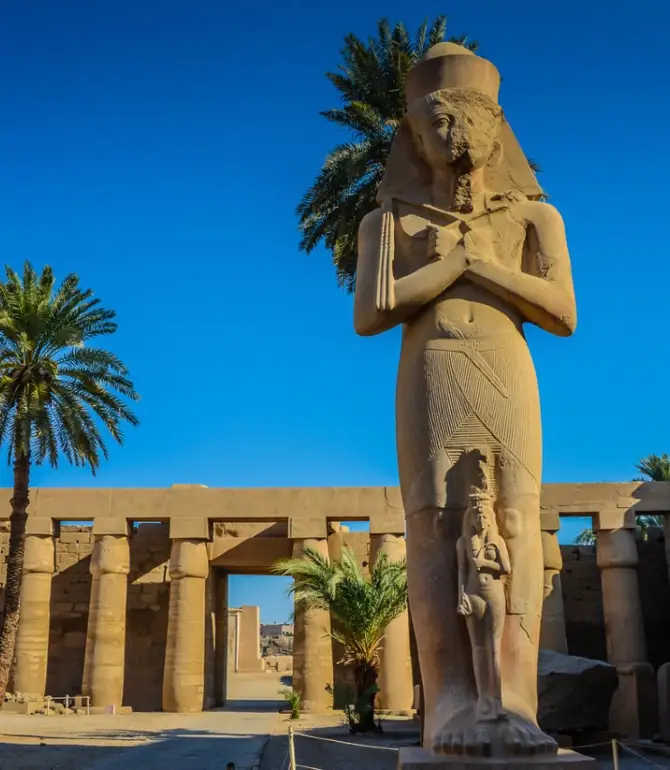
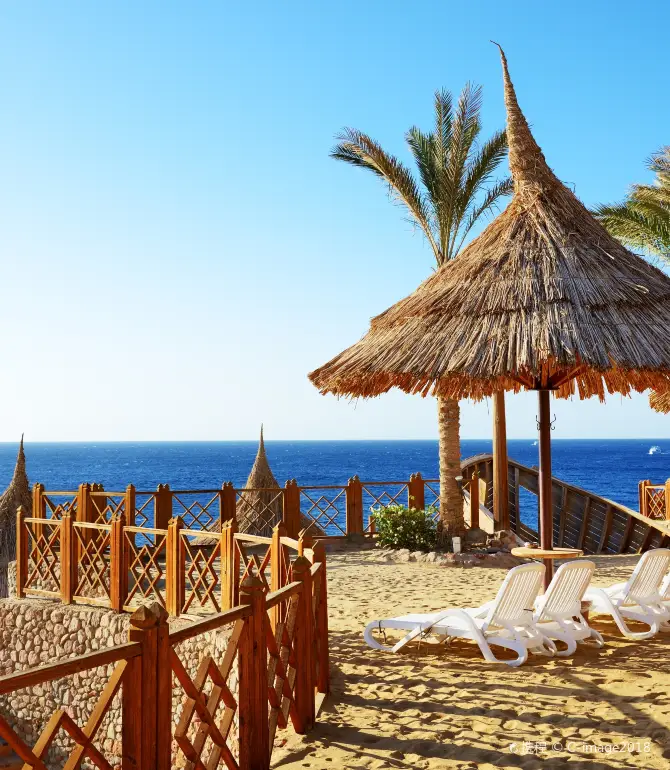
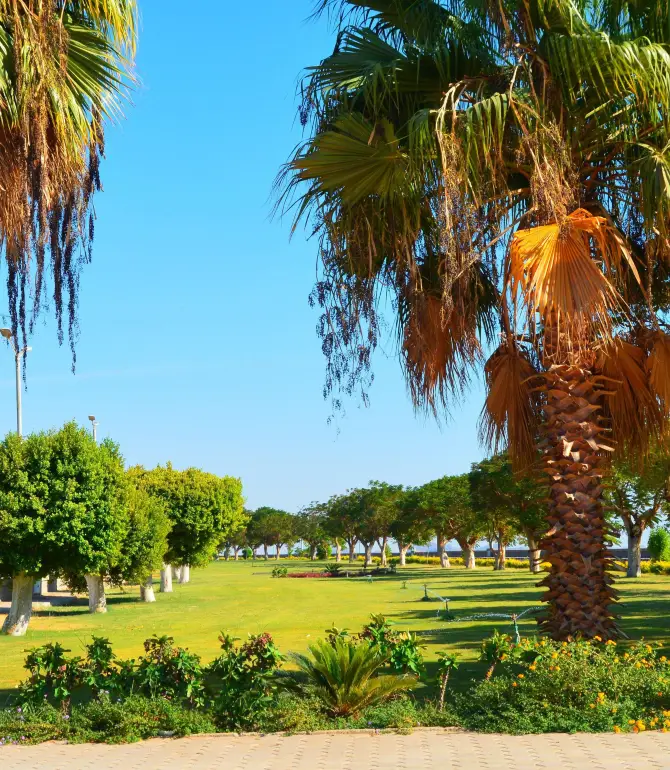
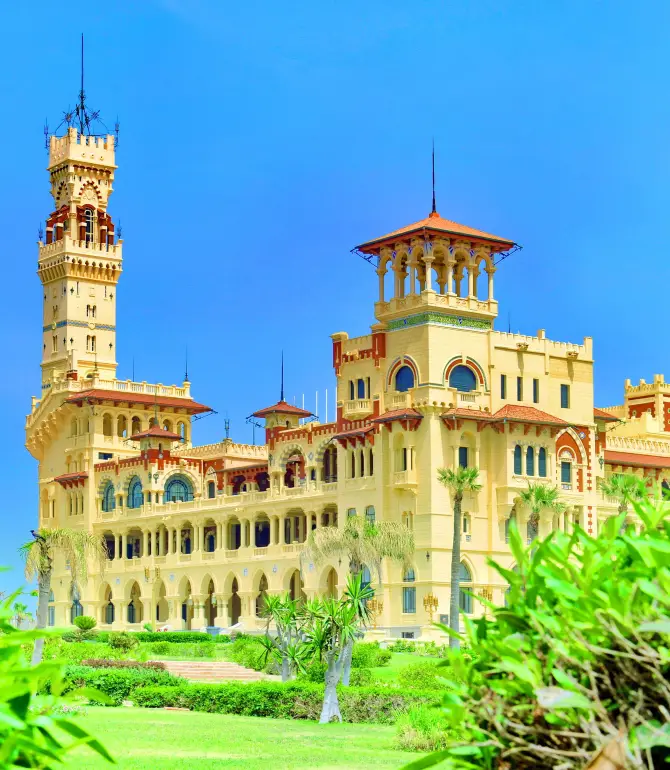
Things to do in Egypt
What to Do
What to Eat
Egypt Moments: Through Travelers' Eyes

I went to Egypt and broke up with my self-destructive life

10-Day Trip to Egypt: The Perfect Getaway

Finally Visiting Egypt: A Dream Come True ☀️

The Grand Egyptian Museum is finally open!

Hotel: Marriott Mena House, Cairo

Alexandria is not worth it

4-Day Egypt Trip for Only CNY 4,000 Per Person

Egypt Pyramid Travel Review: Encountering Ancient Mysteries
What People Are Saying About Egypt
The Egyptian Museum in Cairo
Islamic Cairo
Hurghada
Egypt Divers
Citadel of Qaitbay
Serapeum of Alexandria
Nabq Bay
Naama Bay
Luxor Temple
Karnak
Best of Egypt
About
Site Operator: Trip.com Travel Singapore Pte. Ltd.

